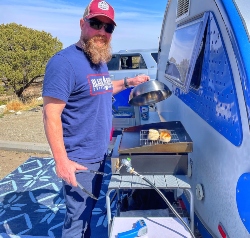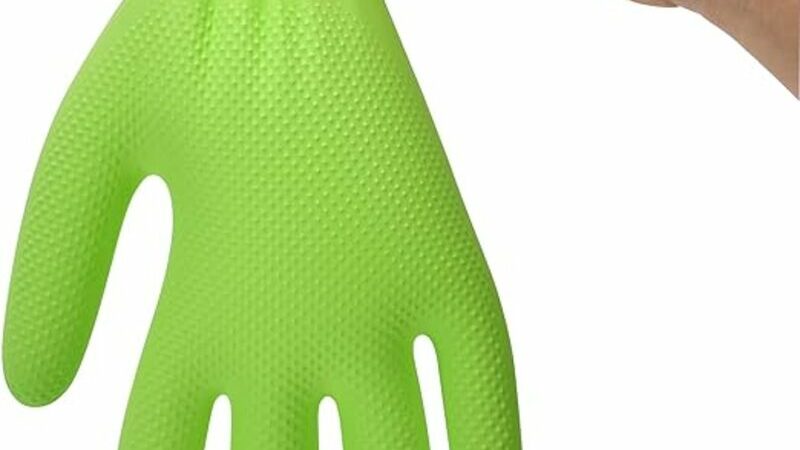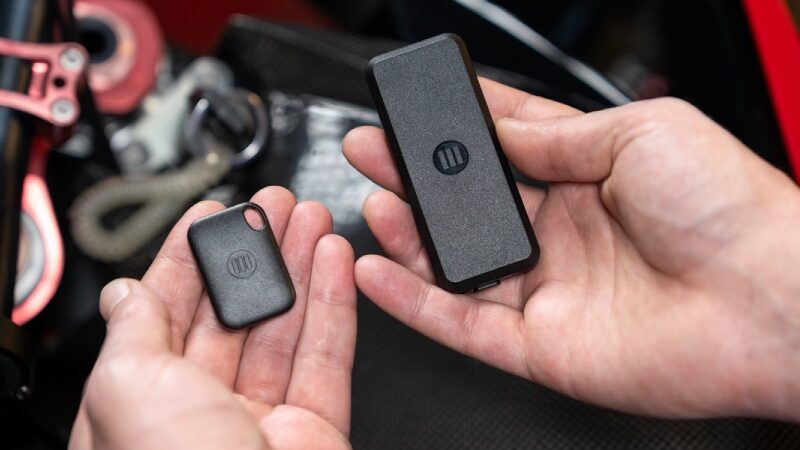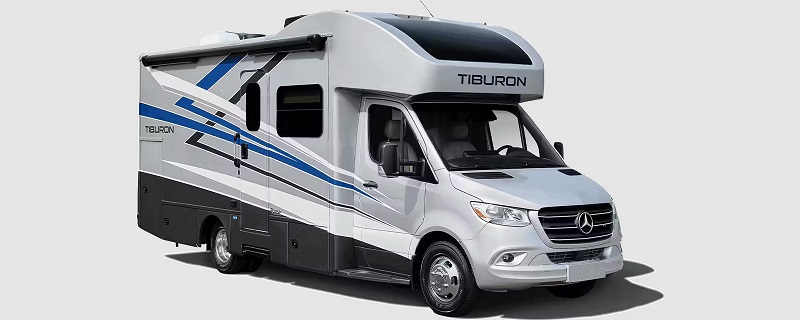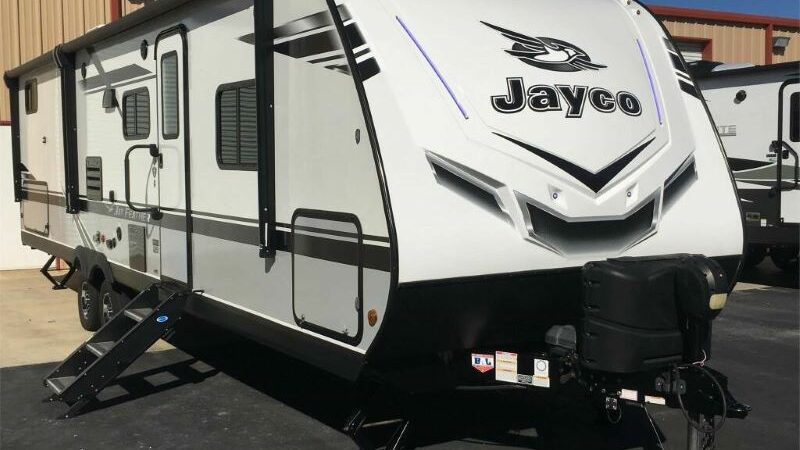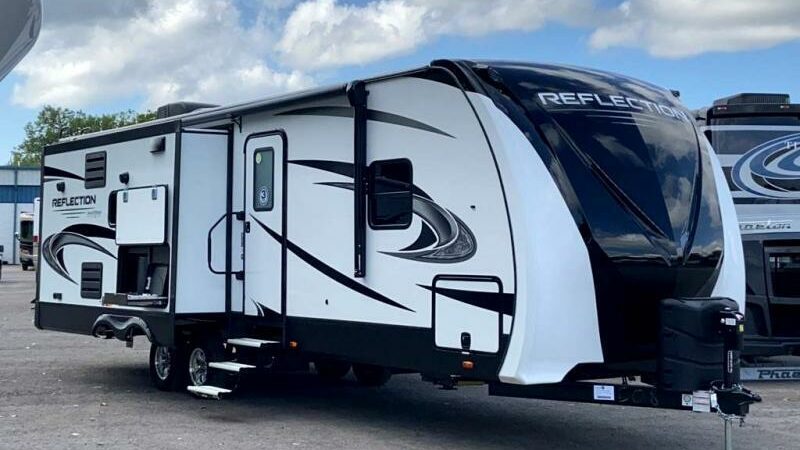Why Your RV Water Pump Pulsates and How to Fix It
Thanks for your support! If you make a purchase using our links in this article, we may make a commission. And, as an Amazon Associate, I earn from qualifying purchases. See the full disclosure here.
One of the things that we love about our RV is the ability to have running water even when we are boondocking. The water pump is the feature that makes this possible. But have you ever heard the RV water pump pulsate when you were not using the sink or bathroom?
When we were new to our motorhome, we noticed occasionally, the RV water pump would pulsate when not in use. This was confusing to us, as it is for many new RV owners.
In this article, we will take a closer look at the reason an RV water pump may pulsate if not in use. While this can be a normal function of your water pump, it can also be an indication of a hidden problem.
Is It Normal For My RV Water Pump to Pulsate When Not In Use?
You have probably noticed that your RV water pump makes noises even when you are not using it. In some cases, it is perfectly normal for your RV water pump to run when you are not using water. Some water pumps cycle occasionally to keep water pressure at the correct level.
This cycling is different, however, from pulsating. If your RV water pump pulsates or seems to rapidly turn on and off, this can be a sign of a leak or other problem in your water system.
What Causes An RV Water Pump To Pulse?
If you are noticing your RV water pump pulsate, but you are not using water from the fresh water tank, there are 4 potential reasons.
1. Leak

The most common reason for a motorhome water pump to pulsate without using water is a leak in your plumbing. This could be a small leak at a fitting, or it could indicate a larger leak that needs to be addressed.
Either way, when your water pump pulsates without being used, you should start by looking for a leak.
2. Low Water Level
If you have not found a leak, you may need to check the water level in your freshwater tank. If your water pump keeps pulsating, and you cannot find a leak, there is a good possibility that there just is not enough water to maintain pressure in the system.
The simple solution is to shut off your water pump until you can refill the tank so that it does not burn up.
3. Blockage

Another possible cause for an RV water pump to pulsate when not in use is there is a blockage in the plumbing system. If your water system gets a build-up of calcium deposits, or if you get sediment in your freshwater tank, this can plug your water lines.
The result is that the water pump cannot maintain constant pressure. If there is a blockage in your water system, you will need to find the problem and remove the impediment.
RVBlogger Freshwater Tank Filling Tip: Even if you have an RV built-in multi-container water filter system, having an RV water filter that fits on the end of your water hose handy for filling up your freshwater tank is a good way to keep the calcium and other sediment out of your RV freshwater tank.
4. Low Pressure
Low pressure in your water system can cause your RV water pump to pulsate but not use water. Pressure in your plumbing system can decrease if you are not using water for a while.
The pulsating that you may notice occasionally if you have not used water is just an adjustment of pressure in the system. However, if you notice this pulsating frequently, look for other reasons that your system is not maintaining pressure.
3 Strategies for Fixing a Pulsating Water Pump
If you are noticing your motorhome water pump is pulsating frequently, there are some steps that you can take to ensure that your water system works efficiently. These steps will also reduce the wear on your water pump.
1. Adjust RV Water Pump Pressure
Adjusting your RV’s water pump pressure is easy to do and may solve your pulsating problem. Most water pumps have a way to adjust the desired pressure. If you find that the pressure is set too high, or too low, causing it to pulsate, a quick adjustment may resolve your problem.
Check the RV water pump’s owner’s manual to find the screw or other part that adjusts the pressure. The solution may take a small turn in the right direction.
2. Use an Accumulator Tank

Accumulator tanks are actually a great idea for all RVs, though many do not have them factory installed. Accumulator tanks are installed on the pressurized side of your water pump. They use an air bladder to create constant pressure in your water system.
They are usually very easy to install and they are readily available on Amazon.
Even if your water pump is not running, the accumulator tank can help push water through your RV. This is a great way to increase the life of your water tank.
3. Replace Your Water Pump
If you find your RV water pump pulsates constantly, and you have ruled out all the other potential problems, it may be time to invest in a new water pump. Like other mechanical parts in your RV, water pumps can fail over time.
Fortunately, this is a part that you can easily install yourself, and they are reasonably priced. We have used Shurflo and Flow Max water pumps and they both have performed well. Just be sure to choose the pump with the proper flow of gallons per minute to make sure you have the proper water pressure in your RV.
3 Best RV Water Pump Replacements
We offer a few options for water pumps that you may want to consider if you are looking to replace a pulsating RV water pump.
1. SEAFLO Self Priming Pump and Optional Accumulator Tank

The SEAFLO Water Diaphragm Self Priming Pump gives you the ability to start using your new water pump without priming. This saves time and is ideal for RV owners that don’t know how to prime a pump.
The SEAFLO gives you 45 PSI of pressure and 3.0 gallons per minute. This pump is easy to install and operates quietly. The pump can be purchased with or without the 0.2-gallon accumulator tank.
2. Shurflo RV Water Pump

The Shurflo RV water pump has a nice operating range. It pressurizes to 55 PSI but will not repressurize until the system reaches 45 PSI.
The Sureflow can run dry without being damaged and is thermally protected, so it won’t freeze. It is also very quiet, so you do not have to listen to your water pump run.
3. Flojet Triplex Diaphragm Automatic Water System Pump

The Flojet Triplex Diaphragm Water Pump For RVs is a middle-of-the-road option when it comes to operating pressure. This pump functions in a manner that allows you to skip the accumulator tank.
It is easy to install and comes with noise-absorbing mounts for quiet operation. The Flojet Triplex Pump operates at 50 PSI of pressure and puts out 2.9 gallons per minute.
Is It Bad for Your Water Pump to Pulsate?
It is not necessarily a bad thing for your water pump to pulsate. Sometimes, this is a normal operation for the water pump. Pulsating is normal for keeping constant pressure in your water system. Your RV water pump will also pulsate when you are running water to maintain the correct pressure.
It is not good when your RV water pump pulsates constantly or does not stop pulsating after you have turned the water off after a few seconds. If you notice either of these situations, you know that there is something wrong with your RV water pump.
5 FAQs When Your RV Water Pump Pulsates

So, your RV water pump does pulsate, why not use it? Will using a pulsating pump cause a problem? Is this normal? These are all questions that you might have if you notice your RV water pump pulsates in between usage.
1. Should Your Water Pump Keep Kicking On And Off?
Your RV water pump should not kick on and off frequently. If you notice that it is pulsating or running multiple times per hour or every few minutes, you have a problem.
2. How Often Should a Water Pump Start and Stop?
Typically, you will notice your water pump start and stop when you are actively using water in your RV. It may also start occasionally if you have not run your water in a while. This is simply to return the system to the proper pressure.
3. What’s the Most Common Reason a Water Pump Fails?
Pump motor failure is the most common reason a water pump fails. There are a few reasons why your water pump motor will die. However, the most common reason for water pumps to fail is age.
Sure, there are other reasons for a water pump to fail, including excessive run time, running dry too long, or electrical surges.
4. How to Maintain Your RV Water Pump

Like other mechanical features in your RV, you will need to maintain your water pump. Proper maintenance of your water pump will extend its life and reduce repair costs.
Water pump maintenance is simple. However, if you do not feel comfortable working on your mechanical features, your local RV repair garage or RV tech can help you with this work.
Your water pump should be included in your RV maintenance checklist and looked at every 6 months. This means checking the filter, looking for leaks, inspecting water lines, and your freshwater tank.
One thing to remember, the filter for your water pump is not the same as the filter that goes between your RV and a city water connection.
5. Can You Leave Your Water Pump on All the Time?
Because most RV water pumps are designed to run only when needed, you can safely leave your water pump on all the time. Some people will turn off their water pump at night or when they leave their RV unattended.
This is not necessary but can give you a feeling of added security or comfort. Turning off your water pump at night will also keep it from cycling and waking your crew in the middle of the night.
Bottom Line: Do I Need to Worry About My RV Water Pump Pulsating?
If you notice your RV water pump pulsating while not using water, you may be concerned that something is wrong. However, in many cases, this is a normal condition of your RV water pump.
Your water pump should pulsate when it is running, or occasionally to maintain system pressure. If you notice that it is pulsating more frequently, this is a good indicator of a problem.
To ensure your water pump works properly, make sure to maintain it according to your owner’s manual. Over time, your pump will eventually need to be replaced. However, with good care, and moderated operation, this inevitability will happen many years down the road.
Related Reading:
1. Aqua View Showermiser: Conserve Your RV Water
2. Why You Need a Water Pressure Regulator For Your RV
3. How to Remove the Plastic Taste from Your RV Water
4. How to Sanitize Your RV Fresh Water Tank
Jason Gass is a full-time freelance writer and part-time RVer whose goal is to share great stories around a campfire with good friends.
When he’s not working, he spends most of his time camping, searching for the best breweries, and road-tripping in his teardrop trailer with his wife, daughter, and two dogs.
